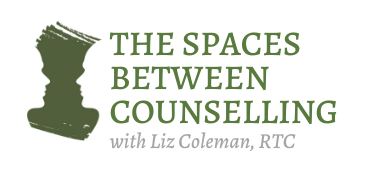When Eating, Drinking and other behaviours become Bad Habits
Sometimes the normal, healthy behaviours we engage in every day become out of control default behaviours, creating problems such as stress and anxiety. Unhealthy habits can be sneaky, starting with an innocent ‘reward’ for having a bad day and leading to becoming the ‘go to’ in an attempt to make yourself feel better. When this happens, you can feel powerless to stop it.
Bad Habits and Inner Demons
Common Bad Habits:
- Eating too much, or not at all
- Watching TV or movies
- Checking Facebook, email or surfing
- Alcohol, smoking or drugs/medication
- Ranting to friends, gossiping
- Shopping
- Work, Exercise, Sleep, Sex
In some cases, daily behaviours become default behaviours and bad habits that you use as a way to cope and distract yourself from feeling the underlying stress and anxiety. It may be your reward or ‘go to’ you’ve done all your life or it may be something new. Chances are you’ve done ‘something’ all your life to avoid feeling. That’s what these default behaviours are for, to numb and comfort so you don’t feel the upset or hurt underneath. When you try to alter the behaviour, you are not getting to the root cause: your feelings. The feeling underneath may have started innocently but became huge and menacing after being hidden and avoided for so long.
Clients will often share that if they start crying they’ll never stop, or they fear if they let the sadness come out, they’ll fall into depression like a deep hole. The feeling has become big and ominous. I’ve heard others call it their Inner Demons. However, the truth is that feelings are feelings, and the menacing monster was created using your own imagination.
Facing the Feelings
The FIRST STEP is to recognize that your behaviours are causing a problem, (often it feels like “Help I can’t stop ”when some behaviour is out of control) and that you desire a different experience (feeling calm, at peace and in control). Much like a personal goal, this recognition can help you when things get tough.
I feel …
Now I want to feel…
The SECOND STEP involves manifesting that goal feeling in your body. When did you experience that feeling (sharing with someone special, at a performance or receiving praise and acknowledgement)? Where do you experience that feeling? For example, you may want peace, and peace feels like a warm sensation around your heart and chest. Relief may feel like lightness in your shoulders. Create a habit of breathing and recreating this feeling every day. Eventually this becomes normal, and you recognize the stressful feelings sooner before they cause problems.
The THIRD STEP occurs when you catch yourself engaging in some of these unwanted behaviours. Create some space between your stress or anxiety, and the default behaviour. When you recognize you are stressed, breathe and give yourself a moment to feel before acting on the impulse. Do not be discouraged if you recognize the stress and behaviour after you’ve eaten, checked your phone or turned on the TV. This is the perfect time to remember your goal feeling and breathe into it. Ground yourself by closing your eyes and putting your hand on your stomach or looking into someone’s eyes. This will bring you into the present where you can check in with yourself to see what you’re feeling. Post reminders to breathe deeply so as to create a habit.
The FOURTH STEP involves getting to know these feelings you’ve been hiding from. These apparent Inner Demons are beneficial. They have something to teach you and can help you find more joy and peace in your life. Write down the thoughts and feelings as often as you can. Open up and share your fears with someone you trust. Revealing the fears behind the bad habits will lessen the intensity of the default behaviours and the need to numb the feelings.
Soon you will be able to enjoy these daily behaviours again without feeling out of control. You will decide whether the reward will be food or alcohol, or the positive daily habits you’ve created to manage your stress and anxiety and avoid numbing.
Liz Coleman, RTC, is a Registered Therapeutic Counsellor based in Surrey, BC. She specializes in anxiety, anger, insecurity, and relationship problems. If you have any questions about this article or would like to schedule an appointment, please call Ms. Coleman at (604) 809-8947 or use the convenient form on her Contact page.

